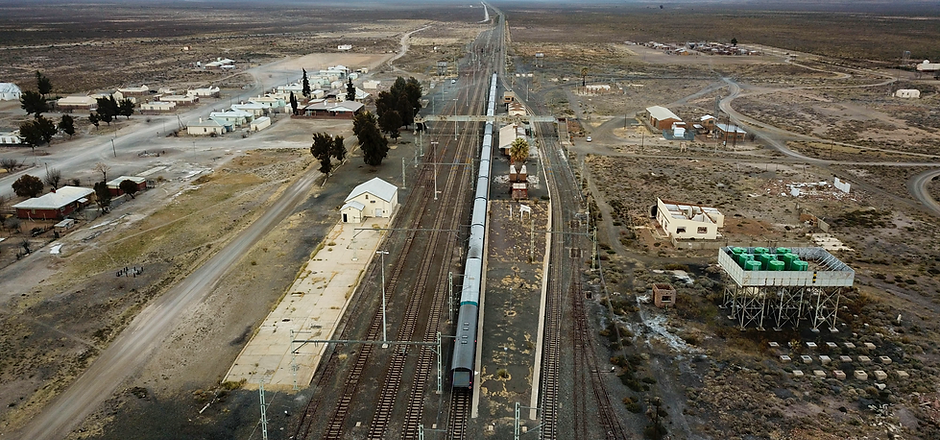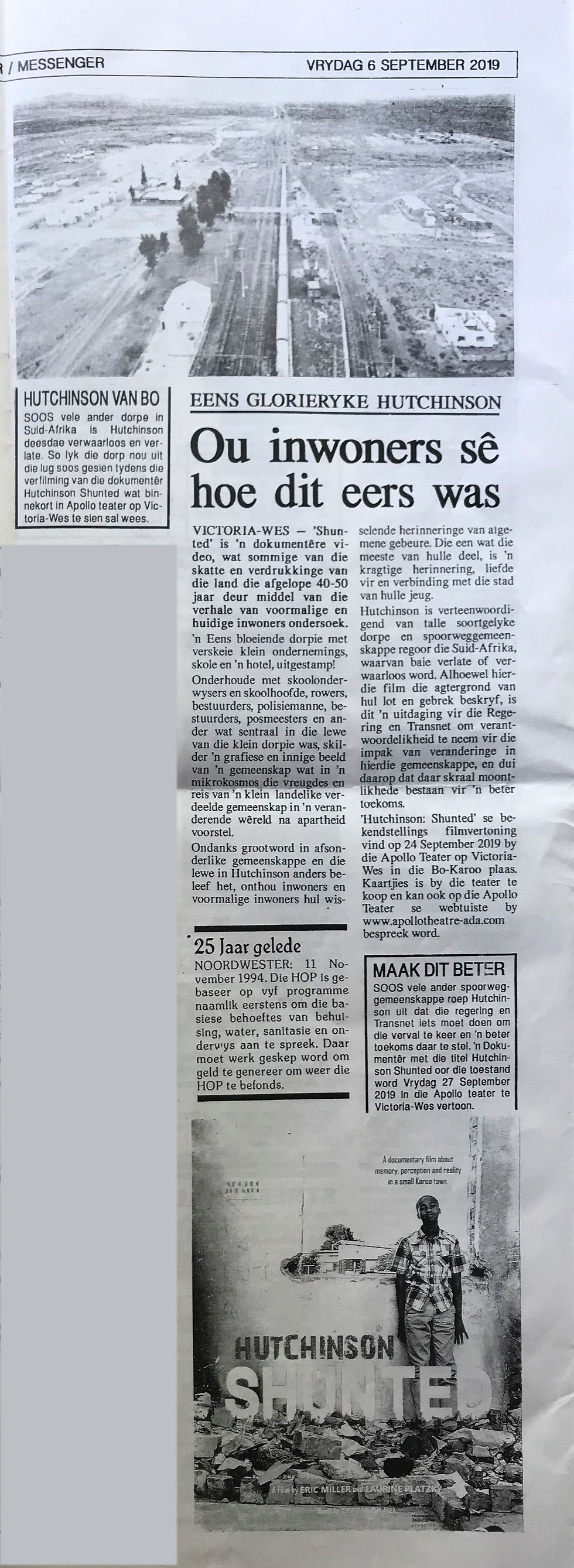
HUTCHINSON:
SHUNTED
A film about memory, reality and perception in a small Karoo town.
By Eric Miller and Laurine Platzky
Hutchinson is a railway junction about 10Km from Victoria West in South Africa’s Northern Cape Province, lying on on the main route between Johannesburg and Cape Town.
The history, growth and decline of the community tracks that of the South African Railways from the early 1900s, through the height of SA Railways growth in the 1950s to 1970s, and into the declining years from the 1980s to now.
In its heyday, Hutchinson was a coal and water refuelling stop for almost 600 passenger and freight trains a month.
This rail traffic and the rail links to the surrounding districts supported a thriving town with several small businesses, schools and a hotel.
Now only the Shosholoza Meyl passenger train stops there, six times a week, and almost always hours late, leaving shivering passengers in the predawn chill. Most freight trains travel through the station without needing to stop.
‘Shunted’ is a video documentary that explores some of the high points and tribulations of the town over the last 40+ years, through the stories of former and current residents.
These stories, told by school teachers and principals, shunters, drivers, policemen, managers, postmasters and others who were central to the town’s life then and now, paint a graphic and heartfelt picture of the impact of a post-apartheid changing world on a small rural community.
Despite growing up in separate communities and experiencing life in Hutchinson differently, residents and former residents recall their varying accounts of common events. The one thing most of them share is a powerful memory, love of, and connection to the town of their youth.
Hutchinson is representative of numerous similar towns and railway communities around South Africa, many of which are similarly abandoned or neglected.
While this film describes the background to their fortunes and predicament, it poses a challenge to both Government and Transnet to take responsibility for the impact of changes to these communities, and indicates that there are slender possibilities of a brighter future.

SHUNTED: The Trailer
Eric Miller is a long time photojournalist who documented the last decade of the anti-Apartheid struggle for the Afrapix photo collective as well as Reuters and Associated Press news services. He worked for a variety of European and Scandinavian publications across Africa through the 1990s and 2000s, and in the last decade has worked on his ‘own’ projects, as well as assignments related to social justice issues for a variety of local and international NGOs.
Laurine Platzky was a land rights activist during the Apartheid years, and worked in Nelson Mandela’s Presidency in 1996. She then worked for 20 years in National and Provincial Government on strategic and socio-economic development planning, housing, cultural affairs, sport and international relations, until she reached obligatory retirement age.
She currently teaches part time at the Nelson Mandela School of Public Governance at the University of Cape Town, and works part-time at the University of the Western Cape as a strategic planner.
Hutchinson:SHUNTED is Miller and Platzky’s first film.
Edited by: Annemarie James
Music by: Gert Vlok Nel








